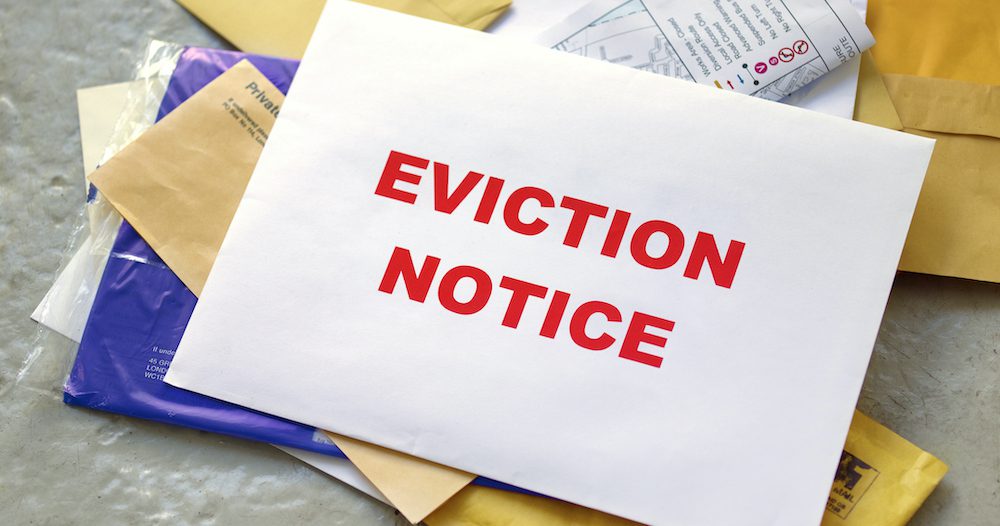How To Fight an Eviction During the Coronavirus Pandemic

How To Fight an Eviction During the Coronavirus Pandemic.
Federal and state programs to help renters struggling during the COVID-19 pandemic are ending soon, and many renters will face eviction. Here’s what to do next.

Peter Dazeley / Getty Images
Eviction may soon become a reality for millions of American renters.
In March, the Coronavirus Aid, Relief, and Economic Security (CARES) Act prohibited landlords from evicting tenants for nonpayment of rent in homes with federally backed mortgages. But this program ended on July 24.
As a result, an estimated 20% of the 110 million Americans who rent their homes are at risk for eviction by Sept. 30, according to a report by the COVID-19 Eviction Defense Project, a group of economic researchers and legal experts working to better understand the housing, homeless, and community recovery during the pandemic.
“We anticipate a flood of evictions because many tenants won’t be able to pay the back rent, and it will be due,” says Deborah Thrope, deputy director at the National Housing Law Project, a housing and legal advocacy nonprofit.
“The eviction moratorium is simply a pause. It’s not rent cancelation,” Thrope says.
But even if you’re struggling to pay rent, this doesn’t mean an eviction is your only choice. Here’s an overview of some of the steps you can take to fight an eviction.
Talk to your landlord ASAP
“The best advice I can give tenants when their financial situation starts to deteriorate is to communicate with your landlord,” says Marina Vaamonde, a real estate investor in Houston and founder of HouseCashin. “Their willingness to have a discussion is the only way tenants can come to a resolution without going to court.”
According to a recent survey of landlords by the American Apartment Owners Association, 67% said they would be willing to offer tenants a rent deferment if they needed it.
So if you know you can’t make your next rent payment, reach out to your landlord as soon as possible. Waiting until after you get an eviction notice may be too late, and your landlord may be less likely to work with you. Your landlord could also already be in the process of filing the eviction with the court, and have paid fees to do so, which may make him more likely to follow through.
“There are a number of things you can negotiate with your landlord,” Thrope says. Some options to consider include a rent repayment agreement, shortening the terms of your lease, or possibly getting out of your lease altogether.
Learn how COVID-19 moratoriums apply to you
Eviction laws vary drastically across the country at the state and even city level, and the COVID-19 pandemic has made it all even more complicated. Along with the CARES Act eviction moratorium, states and municipalities issued their own mandates to pause evictions. So make sure to read up on the eviction laws in your area specifically to better understand what your landlord is legally allowed and not allowed to do.
“Once you understand your legal rights, you’ll know your options,” Thrope says. “We have this patchwork of policy all across the country right now, so it’s important to know the local law and tenant protections.”
One resource for finding out the statutes of local eviction laws is the Eviction Lab at Princeton University, which created a nationwide database. The group has also developed a state-by-state COVID-19 Housing Policy Scorecard, tracking states’ responses to evictions and during the pandemic.
NHLP also has local and national online resources for renters and homeowners during the pandemic.
Make sure your landlord gives you adequate notice
Landlords usually have the legal right to evict tenants for not paying rent, violating a lease, causing damage to the property, or engaging in illegal activity at the home.
Most states require landlords to give an adequate notice of eviction with a deadline to pay rent or move out and the amount owed. If you don’t meet the deadline, the landlord can file a lawsuit to evict you.
But if landlords don’t provide adequate notice of eviction, Vaamonde says a judge will often throw out the case.
In Texas, for example, landlords must provide an official three-day notice to vacate the property with the reason for the eviction, and can file an eviction hearing with the court if the tenant doesn’t respond or move out.
Landlords are also prohibited from taking extreme actions during the eviction process, like changing the locks or cutting off utilities.
Attend your eviction hearing
After being closed because of the pandemic, eviction courts are beginning to reopen across the country, and are moving cases through quickly to clear up the backlog of evictions.
If your landlord files for an eviction in court, you will receive a notice to appear for the hearing. It’s important to show up, especially if you hope to fight the case. You have the right to examine and present evidence and bring witnesses, Thrope says.
“Showing up to the eviction hearing at the courthouse is the only way to receive some form of leniency,” Vaamonde says. “If the landlord wants you out of his property, the judge is the only one with the authority to defer your eviction.”
Since the pandemic has made showing up to court more difficult and dangerous, many proceedings are being held virtually, with tenants expected to appear by phone or videoconference. This may be easier for some tenants, but Thrope says in other cases, it can interfere with due process for some tenants who may not have access to the technology. It also makes it more difficult to look over evidence or converse with attorneys. Make sure you know when, where, and how you’re supposed to show up in court to make sure you do what you can to present your case.
“We hope that courts understand that this is a public health crisis, and that people sheltering in their homes is one of the remedies,” Thrope says. “To put people on the street right now is only going to exacerbate this crisis, so we hope courts will do the right thing.”
Consult an attorney
Fighting an eviction alone is overwhelming for many tenants since the process is so complex. Thrope urges tenants facing eviction to hire an attorney or contact local legal aid organizations.
“Reach out for legal assistance,” she says. “That’s really important because you need to understand what protections you can avail yourself locally.”
A lawyer can help explain whether you’re protected by the CARES Act or other local mandate, as well as how regular eviction laws apply in your situation and what exactly you need to do to fight an eviction.
A lawyer will also help you gather documentation to use as evidence, such as proof of past rent payments or that you lost your job, and any communication that you had with your landlord.
“Most tenants are not represented,” she says. “Some tenants may be savvy enough to [represent themselves], but it’s a legal process. We have the right to counsel, and it’s really critical here.”
The post How To Fight an Eviction During the Coronavirus Pandemic appeared first on Real Estate News & Insights | realtor.com®.
